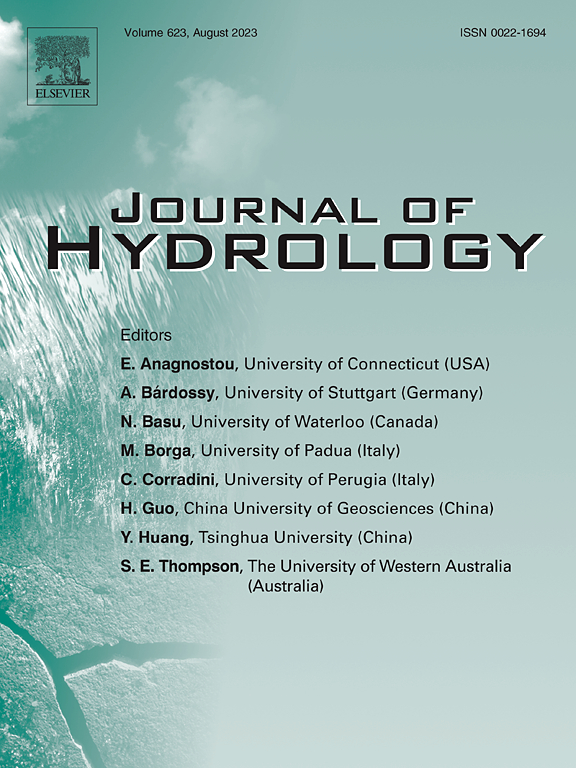A simple mixing model using electrical conductivity yields robust hydrograph separation in a tropical montane catchment
Abstract
Hydrograph separation assessment is crucial to understand stormflow generation at catchments worldwide. Tracer-based methods provide robust estimations of event (or new) and pre-event (or old) water fractions as they account for external and internal catchment hydrological behavior. While models of different mathematical and computational complexity are often used in tracer-based hydrograph separation studies, direct comparisons between those models are limited. Here, we compare hydrograph separation results yielded by the simplest Two-Component Mixing Model (TCMM) and a Tracer-based Streamflow Partitioning ANalysis model (TraSPAN) assumed to provide robust results as it combines conceptual rainfall-runoff modelling with tracers’ mass balance. We carried out the analysis using high temporal frequency (sub-daily to sub-hourly) data of two tracers, Oxygen-18 and Electrical Conductivity (EC), monitored during 37 rainfall-runoff events with different hydrometeorological conditions in a high-Andean páramo catchment located at the Zhurucay Ecohydrological Observatory in southern Ecuador. Both approaches yield similar estimations of event and pre-event water fractions regardless of the tracer used as long as appropriate concentrations of event (Ce) and pre-event (Cp) water for the TCMM are determined. Although the estimate of Ce has little influence with one rainfall sample collected during the event being sufficient to obtain reliable results, results hinge heavily on the estimate of Cp. We found that the TCMM yields similar results than TraSPAN when Cp is represented by the stream water concentration corresponding to a sample collected prior to the beginning of each of the events. We conclude that the combination of a simple framework (TCMM) with sub-hourly EC measurements provides reliable hydrograph separation results when representative Cp samples are used. These findings will allow to lower the logistical and economical resources needed to adequately assess hydrograph separation and to carry out quasi-continuous assessments of flow partitioning with high accuracy in high-Andean páramo catchments.

| 公司名称 | 产品信息 | 采购帮参考价格 |
|---|
 求助内容:
求助内容: 应助结果提醒方式:
应助结果提醒方式:


